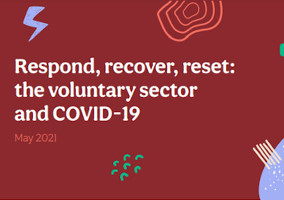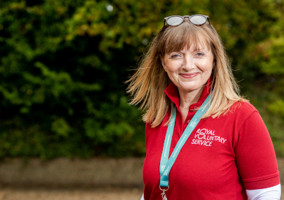Volunteering during the pandemic had a mainly positive impact on people and communities and should be central to a recovery that prioritises wellbeing, say researchers.
Reports based on two studies about the contribution of volunteering to individual and community wellbeing during the pandemic were published by the Wales Centre for Public Policy (WCPP) today.
Researchers argue that policymakers need to consider the evidence that shows volunteering during the pandemic was good for people’s wellbeing, but also acknowledge what prevented some people from being involved.
One report reveals that volunteering website Volunteering Wales experienced a significant spike in people registering to volunteer early in the pandemic – from 459 registrations in February 2020 to 10,336 in March 2020.
It also says that one of the key reasons volunteering helps improve wellbeing is that it builds social connections.
“At a time when many people have been unable to see family and friends, forging social connections with others has been possible through volunteering. Although food or medicine delivery may no longer be needed in future, social connections are likely to remain just as important as we begin to rebuild society,” it explains.
Researchers also emphasised the importance of volunteering opportunities continuing to be “flexible” as society adapts to a new normal.
Councillor Andrew Morgan, Welsh Local Government Association leader, said: “We have seen people in communities right across Wales give so willingly and selflessly of their time during the pandemic. They have been an integral part of our collective response to the crisis and will continue to be so as we look to recover.”
Anna Nicholl, director of strategy at WCVA, added: “This research demonstrates the huge wellbeing gains we get from volunteering and why it must be at the heart of our recovery. It gives a roadmap for what is needed to secure that, not least long-term investment in our volunteering infrastructure.”
‘Did not spring up out of nowhere’
Another of the reports highlights that it was those areas that had stronger infrastructure and social cohesion pre-pandemic where the volunteer response during the pandemic was strongest.
It says: “The volunteer response did not spring up out of nowhere.”
The report explains that where there had been specific social cohesion programmes prior to 2020 communities had “remained more cohesive during the pandemic than others”.
It goes on to say “existing infrastructure played an important role in coordinating the volunteer response and contributing to community wellbeing”.
Examples of this local infrastructure include: church halls, community cafés, town and community councils, county and borough councils, charities, county voluntary councils (CVCs), and umbrella bodies.
18 major charities make volunteers’ pledge
Elsewhere, 18 charities have set out a shared commitment to volunteering. They hope to seize the opportunity to expand volunteering in the wake of the pandemic.
The Shaping the Future with Volunteering group is being co-chaired by Catherine Johnstone, chief executive at Royal Voluntary Service,and Matt Hyde, chief executive at Scouts.
Johnstone said: “We have a once-in-a-generation opportunity to create a bigger and broader civic society which will build stronger communities. Millions of people have stepped forward during the pandemic for the first time and while supporting others in their hour of need, they have benefited themselves in so many ways.
“I have been humbled by what I have seen through our work with the NHS on the frontline, our volunteers have supported those in great need, often out of their comfort zone, but rising to the challenge. In return they found new confidence, a sense of community and belonging and a feel-good-factor which comes from doing something of real value.”
In a position statement launched today, the group of charities has identified four key areas of opportunity for volunteering:
- Understanding – promoting better understanding and celebrating the power of volunteering.
- Inclusion – sharing a commitment to equity, diversity and inclusion, learning from the best examples of volunteer engagement across diverse demographics, geographies and cultures.
- Support – learning more about valuing volunteers and how they can be better supported and making sure systems are accessible to everyone.
- Partnerships – working with other volunteer involving organisations of all shapes and sizes, learning from each other and working closely with government, business and other agencies.
The full list of the 18 charities involved in the "Shaping the future with volunteering" group are:
- British Red Cross
- Cats Protection
- Girlguiding
- Helpforce
- NSPCC
- National Trust
- Papworth Trust
- Rotary
- RNLI
- Royal Voluntary Service
- Samaritans
- Scouts
- St John Ambulance
- Stroke Association
- The Conservation Volunteers
- Volunteering Matters
- YHA
- NCT
Related articles












